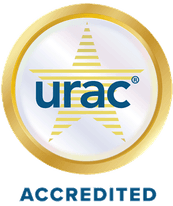Why PBM Contracts Are to Blame for High Drug Prices
Written by
Alan Pannier
Jun 13, 2024
Imagine you're at the pharmacy counter, ready to pick up your medication, only to be hit with an astronomical bill. This scenario is all too common for many Americans, and the question on everyone's mind is: Why do drug prices keep soaring?
While pharmaceutical companies are often blamed for this financial burden, the truth is more complex and involves a less visible but equally powerful player in the healthcare industry – Pharmacy Benefit Managers (PBMs).
Traditional PBMs are the intermediaries between insurance companies, pharmacies, and drug manufacturers. They were originally created to help manage prescription drug benefits and negotiate lower prices for consumers. However, over time, their role has shifted, and the contracts they sign with employers and health plans have become a significant factor in driving up drug costs. These contracts are almost always discount-based, meaning they focus on securing discounts off a list price, either through AWP discounts or rebates, rather than achieving the lowest net cost.
The table below is an example from a PBM contract showing how PBMs are held accountable to health plans for providing access to drugs:

How PBM Contracts Influence Drug Pricing
Now, imagine a new specialty drug coming to market. The PBM is supposed to negotiate with pharmaceutical companies to minimize the cost of the drug for their clients. However, because PBM contracts focus on “rebate guarantees” rather than the “cost of the drug,” this influences PBM behavior significantly.
Due to “rebate guarantees,” PBMs have an incentive for the pharmaceutical company to price the drug higher. Why? Because a higher-priced drug means a larger rebate, allowing the PBM to meet its guarantees. If the PBM can push the list price high enough and negotiate a substantial rebate, they can even pocket some of that rebate as extra profit.
The table below illustrates how a PBM views its “negotiation” with a pharmaceutical company about a drug. For this example, let’s assume the PBM has a rebate guarantee of $2,500 to meet its client contract requirements.

If you were the Wall Street-owned PBM, which option would you choose? Unsurprisingly, big PBMs prefer Option C. And this is why drug prices continue to go up.
The simple narrative in America has become that pharmaceutical companies are greedy and continue raising prices. But the reality is that big PBMs—who are supposed to be controlling prices—are actually pushing them up to maximize their own profits. Through the use of discount-based contracts, big PBMs have been able to achieve this feat of extracting profit from their clients while fooling them into thinking that they are performing.
Save 30% or More on Pharmacy Spend—Request Analysis
A Real-World Example: Insulin
A real-world example of this can be found by tracking the list vs. net price of insulin over time. For years, PBMs pressed insulin manufacturers for more and more rebates, leading to higher and higher costs for plan sponsors. See this analysis for more details.

A healthy tension needs to exist between the various stakeholders in the pharmacy supply chain. Pharmacy benefits managers can play a crucial role in lowering costs for plan sponsors by negotiating discounts with drug manufacturers and reimbursements to pharmacies. To do this effectively, incentives need to be aligned between the PBM and the plan sponsor. This starts with fundamentally changing the key elements of a PBM-Plan Sponsor Contract. Contracts should move away from the traditional discount-based model (AWP discounts and rebate guarantees) to a cost-based framework focused on actual drug spend.

Written by
Alan Pannier
Chief Strategy Officer, SmithRx
Alan oversees the company's pharmacy initiatives, including manufacturer relations, network management, and clinical solutions. His background includes clinical leadership roles at Magellan Health and Veridicus Health, as well as hands-on experience as a practicing pharmacist. Alan's academic credentials include an MBA and PharmD from Idaho State University, a Bachelor's in Chemistry and Business from Westminster College, and specialized training in managed care pharmacy. His comprehensive understanding of the industry drives SmithRx's innovative approach to pharmacy benefits management.





